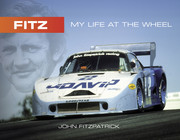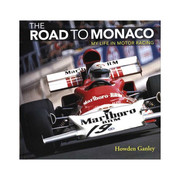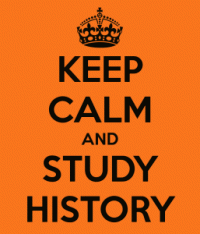Hey, Ulysses 31 stayed pretty faithful to the core material, the creator wanted kids to go off and read the original stories (which incidentally is exactly what I did) and also had a killer theme tune, which was the real reason I picked it for the reference here, of course.
I finished the book this evening and thoroughly enjoyed it. I had been excited to read it too, and had remembered an interview with Damon several years ago in which Paul Kimmage asked him about whether he was interested in writing an autobiography:
"I don't know," he said. "I think that I'd want to write it myself and I just haven't found the time yet. And there are two sides to this: there's the sporting story and what I did in my career; and there's my life, which is a different story altogether. I haven't worked out how I would separate them yet."
"Why would you want to separate them?" I asked.
"We all have places we don't want to go," he said. "There's a boundary where you say, 'That's as far as you go', and I'm not sure who would want to read it. If I could write a book that explained my life to me, that would be useful, I would read it, but I don't quite have the perspective on it yet."
I was always amused but also struck by the poignancy of someone wishing the story of their life existed so they could read it to find out what it had all meant. I see Paul Kimmage remembered it too because this is reprinted/ taken from his piece about the new book in independent.ie
So what do we learn? As Vitesse2 has said, in a way, we don't learn that much in terms of facts being imparted - this is, after all a life that was spent largely in the public eye from childhood as the son of one of a complex and very famous man. Accordingly, what he get is more about how Damon felt at the time of significant events and in some instances, how his views have changed over the years. So for example, we knew there were clashes within the Williams team but not that Damon feels in hindsight that part of the issue was his unconscious frustration that Frank Williams and Patrick Head weren't behaving like his own father, the mechanic turned driver turned team boss.
And of course Graham himself. I will break off to say that I admire Graham Hill's achievements extraordinarily highly and it blows my mind all he achieved considering how late he came to the sport. He also had died before I really became aware of motoracing so there's never been a time when I didn't know of the sad end to his life, which I think retrospectively colours everything else somehow, in a way that doesn't happen for the thankfully few drivers who I saw live out their lives at the same time as me. I can remember my own feelings of that as well as the sadness of what comes later. The interesting thing is that Damon Hill comes across as doing the same - even the happy memories tend to be presented in the context of the future accident, such as an aside that the plane they're taking for a holiday is the same one that will crash later, which is unsettling. Graham Hill himself comes across as contradictory as attempted to be described by his son as he always struck me, by the way. I fully believe the people who queue up to tell tales of Graham Hill's giving nature and his kindness but in the book so many of his jokes and funny stories come across as blunt, bordering on the cruel. I also always thought he was extremely witty but that his sense of humour was angry for want of a better word. 'You know that thing you think is wonderful?' his jokes all seemed to say 'well, actually it's just all bullshit' And his timing was brilliant and his charisma binding so everyone would laugh and yet I wondered how he really saw the world. The chapters devoted to the circumstances of his father's death are extremely raw and painful reading, making it very clear just how devastating this was for him and his family and how in its way the shock continued to reverberate through his life as if from a depth charge.
Other highlights - his infectious enthusiasm and love for bikes. Really, the sense of love for bikes that comes across seems more profound than it does for the cars and world of F1 but his reasoning for moving from one to the other are presented very logically.
His writing about Ayrton Senna, who he has written about before and his insight is fascinating because he's one of the few people I've read who both sense the Senna aura without really being affected by it. It's just my view but I'm often struck when reading accounts or autobiographies or old footage just how much Senna seemed to get everyone acting, well, a bit like him - all heightened emotion, no matter how down to earth they might generally be. Almost like getting sucked into the orbit of a sun. Damon Hill resists it somehow, possibly due to his own previous experience of being around an extremely charismatic man. And it's fascinating to see.
Overall, what comes across in this book is that this is an exceptionally decent man who was always possibly that little bit too self deprecating of his own worth for his career's good. Even when he wins SPOTY, he almost tries to explain it away even as he thanks people for their support. And yet, that's also part of what endeared him to people beyond his talent and commitment. People voted for him because his successes and failures meant something to the people and still does. They cared about this introspective guy because he was real, and funny and ultimately, because they believed he deserved it. I was therefore saddened to read of his depression that he had to endure and pleased to see he is doing better. I do hope that the warmth and affection shown by people towards him is shown in the signings he is doing to promote this because it looks like it is attracting huge numbers wherever he goes.


























